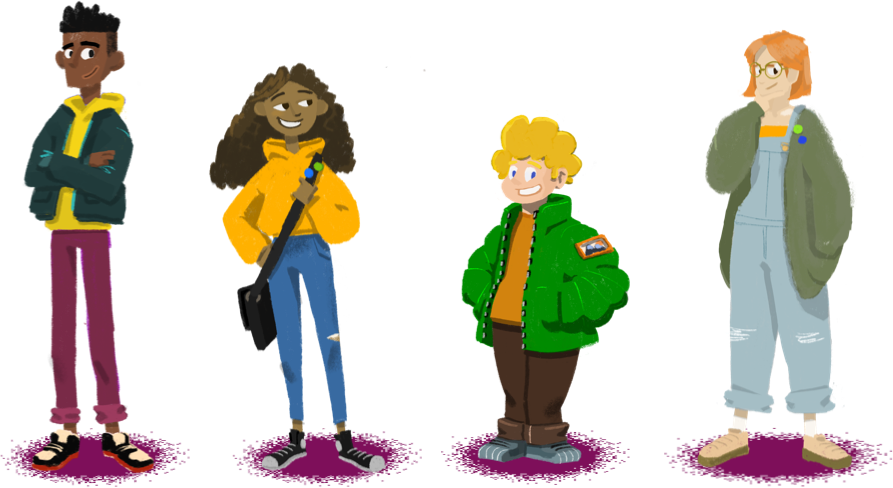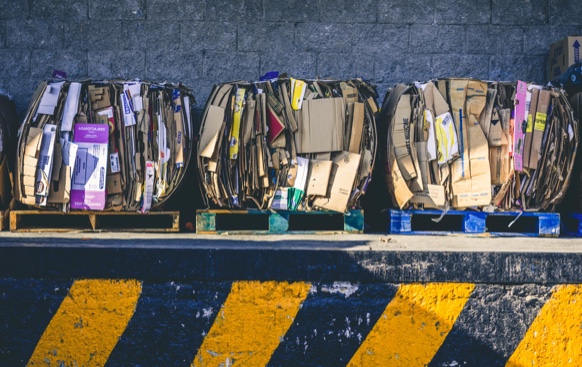What about you?
Over to you!
Do you feel concerned about the threats from climate change? Are you passionate about the need to reduce carbon emissions?
A good place to start is by making changes in everyday actions that reduce your carbon footprint.
No action you take is too small.

Remember these 3 things
It is not too late to fix the climate
To stop climate change from getting worse, we must take action to cut greenhouse gas emissions significantly and adapt to the changes happening now and in the future to limit the damage. The science is clear: we have to act urgently and together. All parts of society and each individual can do their part.
TOP TIP
Leaving a TV or computer on standby mode still uses up some energy. So does plugging in your mobile phone overnight – and even when your charger isn't connected to your phone, it is draining electricity! Switching off and unplugging devices can reduce your house's annual energy costs by as much as 10 %.
Ask the scientist
You can make a difference - we all can!
Read about young people’s concerns about climate change and how they have already started making a difference.
Jonathan, 13. Austrian

Vappu, 16. Finnish

Carolina, 15. Portuguese

Raphael, 11. German

Maja, 13. Slovak / Slovene

Erik, 11. Danish / Spanish

Paolo, 16. Italian

No action you take is too small
No action you take is too small
One way you can make a difference is by making smart choices when you are shopping. Buy less: buy better, spend less – for example, buy one good pair of shoes rather than three cheap pairs.
Buy locally: choosing local fruit and vegetables in season rather than those grown a long way away saves energy used in transport. (But remember, local is not always better carbon-wise, for example if grown in heated greenhouses or with fertilisers made from fossil fuels.)
Be picky about packaging: plastic packaging adds to the waste burden and is not easily recycled. Buy products in recyclable or compostable packaging and take a reusable bag to carry shopping home.

TOP TIP
Turning down the thermostat by 1 °C could reduce your family's energy bill by 10 % – and setting a lower temperature at night and when you are out of the house will lower the bill even more.
Reusing, repairing and recycling waste saves scarce natural resources, energy and CO2 emissions.
World unites for climate action
Some countries, including all EU Member States, adopted legally-binding targets to limit greenhouse gas emissions in the years up to 2020, under an agreement called the Kyoto Protocol.
But even with pledges from other countries to take voluntary action, this was not going to be enough to avoid dangerous climate change.
So negotiations were held on a new agreement that would require action by all countries round the world – and on 12 December 2015 in Paris, France, almost 200 governments agreed on the first ever universal, legally- binding deal on climate change.
The historic Paris Agreement sets out an action plan to limit global warming to less than 2 °C above the temperature of pre-industrial times.
Governments also agreed to try to limit the global temperature rise to maximum 1.5 °C, as scientists around the world agreed that this would significantly reduce risks and impacts of climate change.
The Agreement's other key point is to strengthen the ability of countries, especially less developed ones, to deal with impacts that do occur.
But citizens and businesses have an important role to play, too. All round the world, cities and towns, companies, investors and individuals are already taking action to help keep our climate safe and predictable.
TOP TIP
Turn off the tap while brushing your teeth – this will save many litres of water. Also, did you know that taking a shower instead of a bath uses up to four times less energy as well as much less water?
Young Europeans lead the way
Why not turn the climate challenge into a fun competition at school? Ask your teachers about organising a league, in which the most climate-friendly class or group wins a prize.
Here are a few ideas: planting a school garden, litterless lunches, a 'cycle to school' campaign, a book swap.
Did you know that you can recreate the greenhouse effect with just a glass jar and two thermometers?

Speak up!
Why not get involved yourself? You might come up with an idea that could change the future!
Get your arguments ready and join the debate on climate change at school and at home. And if you feel passionate enough, why not start campaigning for climate action?
- Talk about the issues with friends and family and get them involved. You will be able to explain the topics to them in a way that really makes an impact – and showing them how much you care may make them care more, too.
- Encourage your family to make changes at home and in their daily lives.
- Get your parents to check the labels when they buy a new fridge or air-conditioning unit, to make sure they are energy efficient and are not harmful to the ozone layer!
- Find out what climate actions your school is taking.
- Write to mayors, politicians and business leaders to encourage them to take action.
- Check out our materials for young people at: ec.europa.eu/clima/citizens/youth/
- For more climate-friendly tips, visit: ec.europa.eu/clima/citizens/tips/
- Check out our latest films at: youtube.com/EUClimateAction
